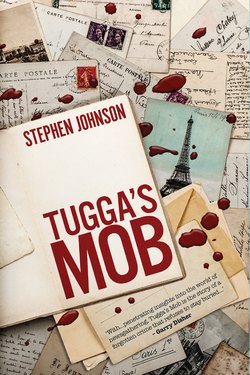Читать книгу Tugga's Mob - Stephen Johnson - Страница 5
На сайте Литреса книга снята с продажи.
ОглавлениеJune 1 1986
Day One: Judy Williams, from Waikato, New Zealand, is now officially in London. God, what a flight getting here: delays in Sydney and then Singapore, but we weren’t allowed to leave the airport. Such a long haul from Auckland to Heathrow, but it’s worth it to be in what I’ve always considered the coolest city in the world. There are millions of cars, people, and houses and the city noise is incredible. It’s close to how I imagined it would be. All those English magazines and movies I’ve spent a fortune on over the past 10 years have prepared me well.
No problems at Heathrow. My work visa was hunky dory for a friendly immigration officer, then it was off to find the Piccadilly Line to Earl’s Court.
Smart girl, I followed the other backpackers who led me straight to the Tube. The energy in central London is amazing, so different from Te Awamutu where nothing happens outside the rugby season. There’s nothing for Mum and Dad to worry about. I feel safer here than in Hamilton; there’s a safety in numbers. Bizarre thinking? Maybe, but I’m surprised at how comfortable I am in one of the world’s busiest cities a few days after leaving the farm.
It was disappointing Charlotte had to cancel her ticket at the last minute because of her mother’s illness. Family comes first, always, but it’s good not to have a chaperone who might inadvertently blab about any shenanigans – especially to Russell. He knew when we met in March how long I’ve been planning this trip, and how important it is. I’m glad he understands and we’ll see what happens with that relationship when I get back to New Zealand.
The hotel in Hogarth Road was a hop, skip and jump from the tube station. It’s grotty and there’s a shared bathroom down the corridor where you pay 25p for a trickle from the shower. I’m sharing the room with two Aussie girls. They’re not bad for Victorians who have never heard of the All Blacks. We’re off to an evening session at the nearest pub, The Prince of Teck. It’s a few yards up the road and there’s no need for a black cab or a double decker bus. They’re on tomorrow’s must-do list, plus Buckingham Palace, the Tower of London, Big Ben, Camden Town markets and everything else I can squeeze in. I’m sure the Union Jack-waver in the family – Mum – would want me to stay longer to watch the Queen Trooping the Colour, or even hunt for Princess Di at some charity event. But I can’t stay, Mum – Europe is calling. Maybe next year.
It feels like the centre of the universe in London with all these different cultures. I thought Earl’s Court was supposed to be full of Kiwis, Aussies and South Africans but there are thousands of Arabs, Pakistanis and Indians. The aromas from their cafés and restaurants are tantalising and nothing like the takeaway shops at home. Reckon I’ll pack on a few kilos before I even get on the bus on Saturday. Imagine – five days in London, then bonjour Paris?
Judy Williams you are going to have the time of your life!
For a 30-year-old trip diary it was in remarkably good condition. The front and back covers were festooned with a montage of entrance tickets and holiday snaps of mid-20s travellers at Europe’s most famous landmarks. They appeared to be Aussies and Kiwis judging by their scrappy T-shirts, battered shorts and thongs; or jandals, depending which side of the Tasman Sea they called home. Droopy moustaches were the fashion for the men who lounged on the greenery of the Champ De Mars in front of the Eiffel Tower. Most of the women wore summer dresses that would have seen them refused entry into Notre Dame, the Vatican or a host of other must-see European sights during the 1980s. New Zealanders called it the Big OE – overseas experience. Australians never bothered with such lofty titles for their backpacking days, although their aspirations were the same – to see the world and have fun. It was a rite of passage, a transition from the innocence of a carefree South Pacific adolescence to becoming citizens of the world.
In the pre-digital days of the 1960s, ’70s and ’80s, when Baby Boomers swarmed into Europe like a plague of locusts every northern summer, the adventures were recorded on Kodak cameras and in trip diaries, such as the one currently held by shaky hands.
The images had faded slightly, but not nearly as much as might be expected, given the passage of time from the first excited scrawl in London to the latest perusal by the current reader, who wasn’t the author. The pages were smudged here and there with fingermarks and the detritus from life on the road; pizza, sausage, calamari, beer, wine and chocolate. Antipodeans were out to taste everything and oft-handled possessions such as diaries would carry lifelong reminders of those tactile experiences.
It appeared though as if few people had read, or even handled, this diary in the years since that great adventure. Had this unique record of a golden summer in a young person’s life been hidden away; pushed to the back of a drawer, or dumped at the bottom of a cupboard or trunk, out of sight and out of mind?
Did it contain memories that shouldn’t be rekindled?
